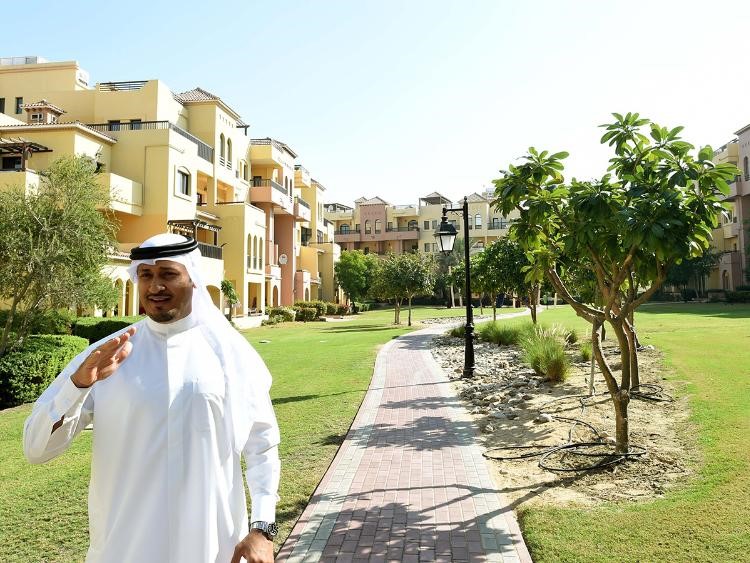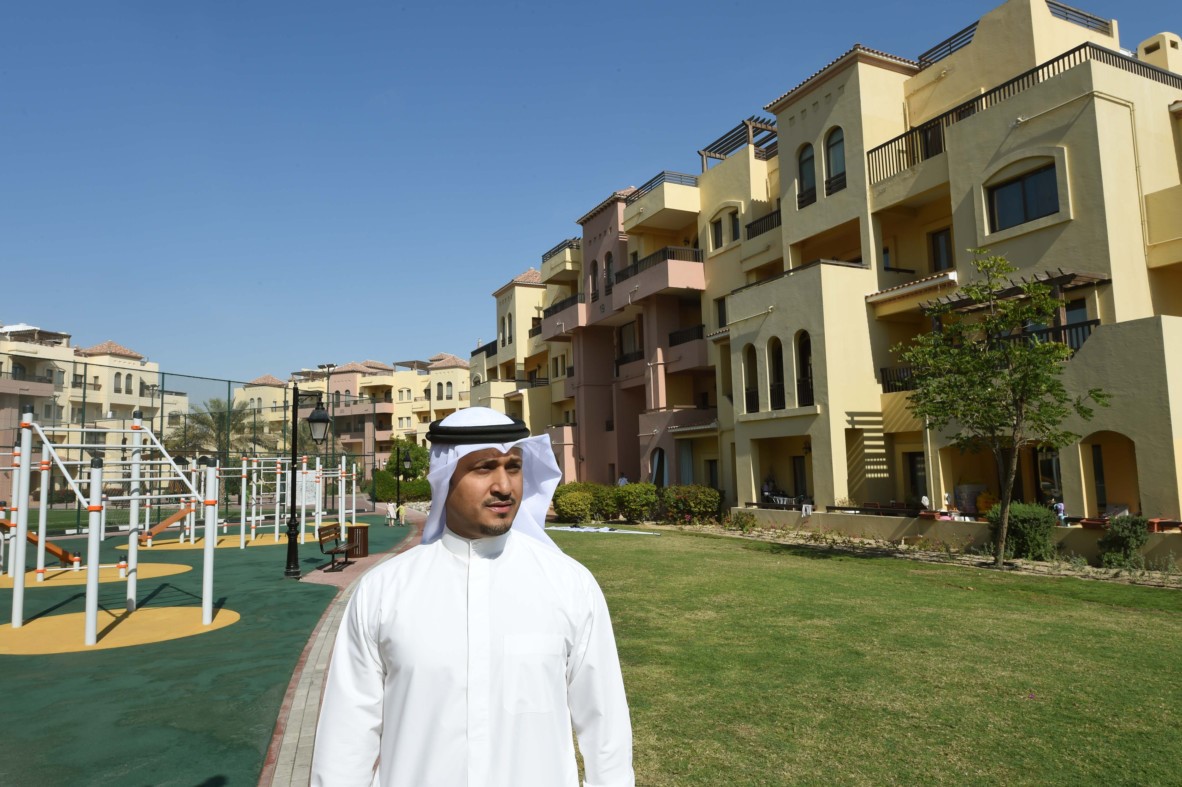
A Dubai developer fixated on building to rent out
Dubai Residential CEO says current market conditions will not be a distraction
Dubai
Arif Mubarak never gets bothered that he is building residential communities and thousands of homes without any plans to sell even one of them. Because his sole purpose — even fixation — is to keep renting them out.
So, this is one CEO of a real estate company in Dubai whose conversations are not peppered with “off-plan” or “ready” properties. But if the subject veers towards “rent”, that’s when Mubarak gets all animated. As CEO of Dubai Residential and a portfolio of 10 communities with a population of 100,000 tenants, guess he has every right to do that.
“The sales market is there for them [residents] if they require it,” said Mubarak. “Our purpose is to enable them to call Dubai home through the rental option. Rentals are still the majority in the real estate market in Dubai, and that’s a fact.
“We believe that sector requires a lot of attention and there are tremendous opportunities to be explored, whereby you can tap into a bigger spectrum of people rather than focusing on just sales.”
It was early last year that Dubai Residential came into being after the parent entity, Dubai Holding, created new stand-alone businesses that includes Dubai Retail. The communities under Dubai Residential include Remraam, Al Khail Gate 1 and 2, Dubai Wharf, and the Ghoroob and Shorooq clusters in Mirdif.
But the ongoing slowdown in Dubai’s property market is not just confined to the sales side … even rentals are under constant pressure. So, isn’t this rental-only focus hurting his company’s bottom-line? More so as other government-owned developers have a mix of properties for sale and rental.
Mubarak insists Dubai Residential has built in enough cushion against current market forces. “As we speak right now, we are sitting at a 95 per cent occupancy rate across the board,” the CEO added. “On top of that, the average stay within our communities is almost 4.5 years compared to market average which is 3.5 years.
“For me, it’s about building cohesive, fully-fledged building communities.”
But with rents sliding across the board, isn’t Dubai Residential seeing the need to adjust its own rates? “We are flexible — we respond to customers and our communities. I say we’ve been able to hold our rental rates better than the market in 2018 and also maintained our occupancy rates.
“This signals that we are heading in the right direction. We respond by offering a variety of options, including flexible (rental) payments. (That means) multiple cheques, monthly payments rather than the traditional three or four yearly cheques.
“It’s how much you understand the market. We need to understand what’s happening first — before jumping in and giving options to customers.”
According to real estate consultancies, forecasts for the year suggest rents and sale prices will remain under some duress. More handovers of homes at freehold communities will be the main contributing factor.
Amid these external factors, Dubai Residential is not solely reliant on the individual tenant to lease and stay in its homes. Its portfolio has 40 per cent made up of corporate clients, who typically take long-term leases of between five and 10 years. Those long-term leases also do their bit for sustaining cash flows, and a the company is offering this to “our other clientele, especially when it comes to renewals”.
But don’t call what the company does as a leasing agency … that’s unlikely to go down well with Mubarak. “We are an asset manager — not a leasing agency or a property manager,” the CEO said. “It’s critical that you own it. One of the successful models that we have seen is to manage the end-to-end life cycle journey of the customer, all the way from the initial check-in of the apartment to the final check out. One of the successful measures, based on customer feedback, is that the owner is there to support them and ensure they have a smooth process.
“We are one of the largest property asset management companies in the UAE. Being an asset manager who actively develops, acquires and manages these assets, it’s critical for us.”
Would it mean the company would only build its own projects and not acquire what may come into the market from other developers? “We are building our own communities — acquisition is an option but not a focus.
“As an institutional asset management company, we are market-driven and cautious when it comes to growth. It is driven purely on evaluation and market trends. We are growing our portfolio within the existing land bank of Dubai Holding land bank.”
Another ‘build-to’ model makes its mark
Anyone in the real estate space would have come across the ‘build-to-own’ or ‘build-to-rent’ strategies. Dubai Residential wants to add ‘build-to-suit’ into this mix.
This is where it develops properties based on the specs provided in advance by corporate clients for their workforce accommodation needs.
“The first one was on Al Ain Road, called Rahaba residence,” said Arif Mubarak. “It was built specifically for two corporate clients and has 100 per cent occupancy. That could be an area for expansion. We are talking to a few corporates and we see it as a product required in the market.”
CEO Profile
Arif Mubarak fast-tracked his way into senior positions at Dubai Properties as the real estate market eased its way out of the downturn brought on by the global financial crisis in 2008-09. In fact, he was part of a generation of Emiratis who came into management prominence at government owned enterprises during the period.
He has been at Dubai Holding for more than 18 years, and was a founding member of the management team there. Mubarak was also founding member of Dubai Media City under the Tecom Group.


